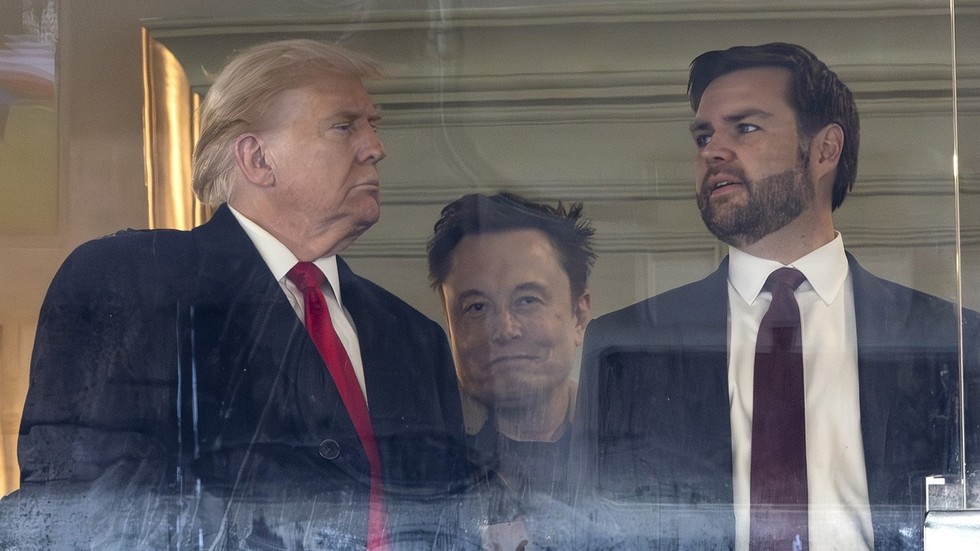US billionaire Elon Musk has voiced support for a controversial online theory suggesting that the Reuters news agency has been used to investigate his business dealings under the Biden administration. Musk, a prominent ally of President-elect Donald Trump, described this alleged linkage as “insane,” asserting that it elucidates many ongoing circumstances surrounding his enterprises. He accused Reuters of acting as “paid propaganda” and expressed disappointment in the agency. The theory put forth by Mike Benz, who leads the pro-free speech organization Foundation For Freedom Online, claimed that the Biden administration granted over $300 million in government contracts to Reuters while simultaneously directing various agencies to scrutinize Musk’s businesses. Benz cited public records from usaspending.gov as evidence, particularly emphasizing a series of Pulitzer Prize-winning reports by Reuters that spotlighted serious consumer, labor, and ethical safety concerns within Musk’s numerous ventures.
Musk’s relationship with Trump has been strengthened since he endorsed Trump’s presidential candidacy in July. He is anticipated to play a significant role in the forthcoming administration, where he aims to streamline government efficiency. Prior to his public endorsement, Musk faced considerable backlash from various left-leaning public figures and media outlet representatives following his acquisition of X (formerly Twitter) in 2022. He bought the platform with the goal of eliminating censorship, claiming that conservative voices were being marginalized. Opponents argue that Musk has turned X into a venue for right-wing extremism, failing to uphold his promise of free speech. In response to this criticism, the European Union has indicated potential legal action against the platform due to its alleged negligence in combatting “disinformation.”
In light of Musk’s political alignment and business ventures, the Musk Foundation recently came under fire for not adhering to the requirements prescribed for charitable organizations in the U.S., based on the latest returns submitted to the Internal Revenue Service (IRS). Furthermore, reports emerged that both Musk and SpaceX are facing investigations related to compliance with U.S. protocols governing classified information. Musk responded to such inquiries by claiming that “deep state traitors” are targeting him, enlisting “paid shills” from legacy media to perpetuate their agendas. His disdain for what he labels “legacy media” has reached new heights, as he characterized their reporting, particularly from Reuters, as “the worst right now.”
The narrative surrounding Musk and his business endeavors raises significant questions regarding the interaction of media, politics, and business integrity in today’s socio-political climate. As Musk seems to suggest a coordinated effort against him through allegedly corrupt media and governmental overlaps, it highlights broader themes of distrust in institutional authority. His claims reflect a wider sentiment prevalent among certain political factions who perceive a conspiracy theory framework in the actions of both media and government. By characterizing his challenges as assaults by a “deep state,” Musk aligns himself with a populist pushback against perceived bureaucratic overreach.
Moreover, Musk’s tenure at the helm of X has introduced an intricate layer to the dynamics of free speech and corporate responsibility, sparking debates about the ethical implications of content moderation and misinformation on digital platforms. Critics of Musk argue that his interpretation of free speech has safeguarded extreme content while sidelining accountability measures required to protect users from harmful ideologies. Similarly, his actions and statements seem to sow discord, positioning himself as a martyr for free speech in the ever-contentious digital landscape.
As investigations into Musk’s activities continue, the unfolding story serves as a lens through which the interplay of wealth, influence, and politics can be scrutinized. It raises pertinent questions about the influence of billionaires in politics and whether their financial power can attenuate accountability. Whether Musk will succeed in navigating the convoluted relationship with the media and governmental entities remains to be seen, but his narrative encapsulates a significant moment in the ongoing dialogue regarding freedom of expression, media integrity, and political partisanship in America. This situation will likely evolve as it intersects with forthcoming developments in both Musk’s business ventures and the broader political landscape he inhabits.

